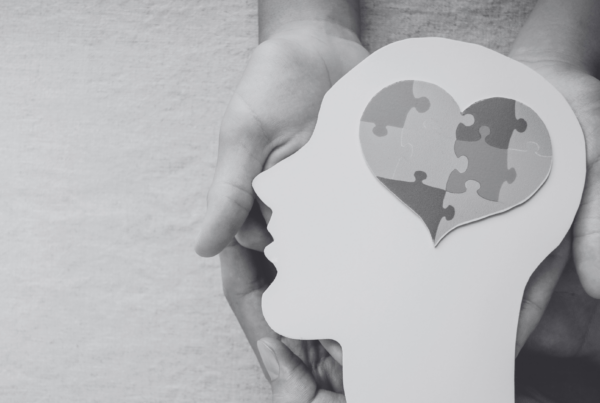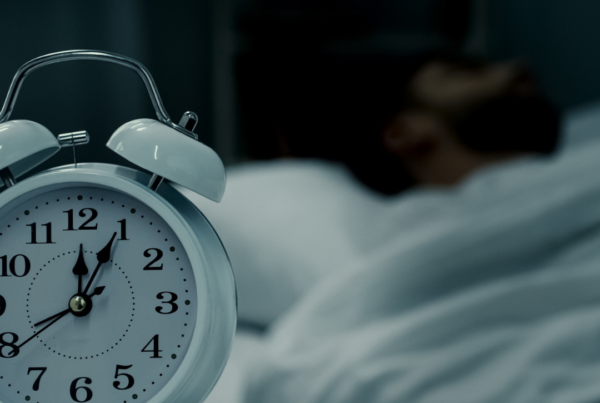Feeling tired and having a lack of energy can be a persistent problem for many people. Tiredness and fatigue can have a huge impact on your health and wellbeing at work and at home.
If you’re always tired, there are simple changes you can make to your lifestyle to increase your energy levels and improve your sleep. Before you make any changes, you need to identify why you are constantly feeling tired.
How can tiredness and fatigue affect my health and wellbeing at work?
Waking up in the morning feeling tired and sluggish is even worse when you have to get up and go to work. Your work life can often be a huge factor in your lack of sleep.
If you are stressed because of work deadlines or upcoming projects, it can cause lack of sleep. Then, the lack of seep causes you to feel overly tired, which leads to even more stress in the workplace. This frustrating circle of stress and lack of sleep is something that many of us find ourselves trapped in from time to time.
If you’re tired at work, you will struggle to stay focused, you won’t be able to complete tasks as quickly and you won’t be able to pay attention in meetings. You’ll also struggle to come up with new ideas and won’t be motivated to complete work or meet deadlines. Being tired can also affect your memory and reaction time.
We spend a large part of our lives at work. So, if tiredness and fatigue is affecting your health and wellbeing at work, its time to do something about it.
 Am I getting enough sleep?
Am I getting enough sleep?
One of the main reasons for tiredness is lack of sleep. The human body needs sleep. As we sleep, our body stores memory, releases hormones, regulates our metabolism and boosts our energy levels.
On average, you should be aiming to get eight hours of uninterrupted sleep per night. To achieve this, there are small changes you can make to your daily pattern.
Aim to go to bed at the same time every night and wake up at roughly the same time every morning – even on your days off. Having a routine will help you fall to sleep easier each night.
Ensure that the room is dark and at a comfortable temperature. Also, try to minimise noise. An eye mask and ear plugs may be a good investment if you are a light sleeper.
You should also avoid using your computer, tablet or phone before you go to bed. The light from an electronic device will act as a stimulant. Instead, try some light reading and have a warm bath.
If you get into the routine of having eight hours of high-quality sleep each night, you should wake up feeling refreshed and energised.
A wellness app can be used to track your sleep and improve your health and wellbeing at work.
What Am I Eating And Drinking?
Your diet can have a great affect on your sleeping pattern and overall health and wellbeing. If you are always tired and low on energy, you should consider making changes to your diet.
We’re not suggesting that you suddenly cut out all sugars, meat, dairy and gluten etc. But slight changes to your diet can certainly help you sleep better at night and improve your health and wellbeing at work.
For example, opt for protein foods that are rich in an amino acid called tryptophan. This creates a surge in sleep-inducing hormone melatonin. Add chicken and turkey, yoghurt and dairy, nuts and seeds and leafy greens to your diet. Also, drink plenty of water throughout the day to keep your body hydrated.
Avoid snacking on sugary and high-fat foods during the day. Instead, eat healthy, well-balanced meals. You should also be avoiding or cutting down on caffeine. Cut down on your coffee, tea or energy drink intake or switch to caffeine free drinks. Cutting this stimulant out of your diet is sure to help you get a good night’s sleep.
Am I Getting Enough Exercise?
There is a mountain of scientific evidence proving that exercise helps improve sleep. Incorporating exercise into your daily routine can help achieve a more restful night’s sleep – and may improve your health and wellbeing at work.
A regular exercise routine can help to reduce your stress levels. Stress is a common cause of sleep issues, including struggling to fall asleep and sleeping restlessly during the night.
You should be aiming for at least 30 minutes of exercise every day. Whether it’s a jog around the park, 30 minutes of Yoga or a gym class – it will help.
Try to exercise in the morning, during your lunch break or straight after work. Do not work out too late in the evening as this can cause you to feel energised and stimulated right before bed when you should be relaxing.
 Am I Putting My Health And Wellbeing First?
Am I Putting My Health And Wellbeing First?
Life moves pretty fast, but it’s important to take some time out for yourself once in a while. Read a book, go for a walk, meditate or simply relax and listen to some music. Making time to switch off and relax can reduce stress and have many positive impacts on your health and wellbeing.
If you make healthy changes to your lifestyle and you’re still feel tired all the time, it may be time to visit your doctor. Your tiredness and fatigue could be caused by an underlying problem such as anaemia, an under active thyroid or coeliac disease.
Get In Touch
If you want to find out more about ways you can get more sleep and look after your workplace wellbeing, then simply get in touch with Wellspace today.
Wellspace are the leading experts in workplace wellness, so we can help you deal with your workplace stress and make sure it doesn’t take over your life.










